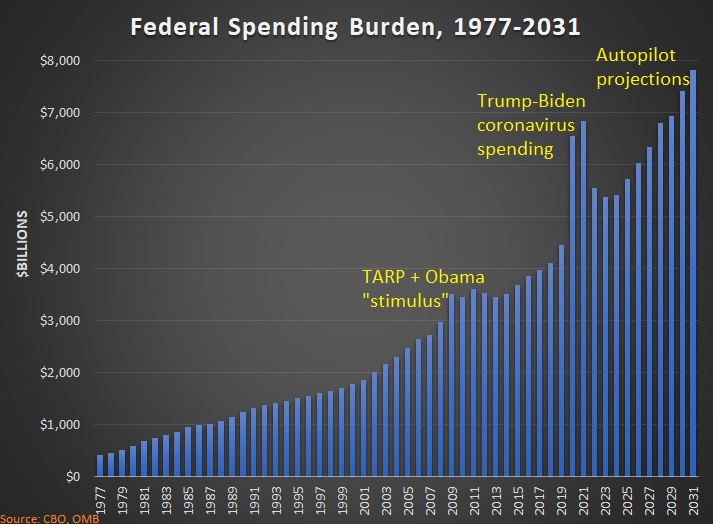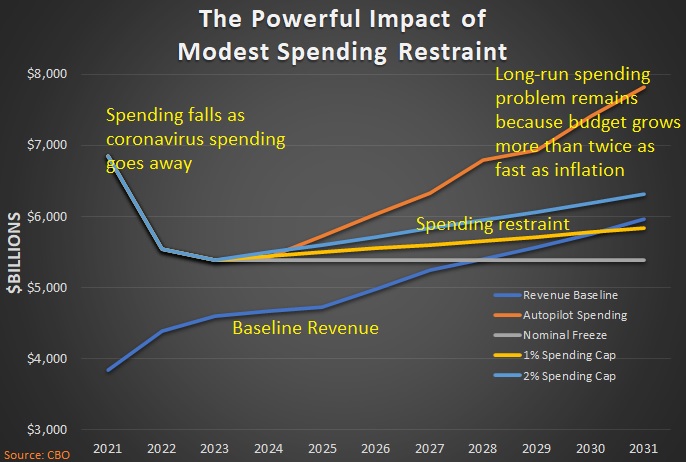I’m not optimist about America’s fiscal future. Thanks primarily to entitlement programs, the long-run outlook shows an ever-increasing burden of government spending.
And rather than hit the brakes, Biden wants to step on the gas with new giveaways, especially his plan to gut Bill Clinton’s welfare reform by creating new per-child handouts that would subsidize idleness and family dissolution.
But that doesn’t mean the problems can’t be fixed. We simply need to replace fiscal profligacy with spending restraint.
To set the stage for this discussion, here’s a look at what’s happened to the budget over the past several decades. You can see how the burden of federal spending has steadily increased, with noticeable one-time bumps in 2008-2009 (TARP and Obama’s so-called stimulus) and 2020-2021 (coronavirus).
The chart also includes projections between 2021 and 2031, based on new numbers from the Congressional Budget Office.
For today’s column, I want to focus on the next 10 years and show how the current fiscal mess can be averted with some modest spending restraint.
This second chart shows that spending actually drops over the next two years as coronavirus-related spending comes to an end. But once we get to 2023, the orange line shows that “baseline” spending (what happens to the budget if things are left on autopilot) climbs rapidly, more than twice the rate needed to keep pace with inflation.
But if there’s any sort of fiscal restraint (a freeze or some sort of spending cap), then the numbers look much better.
More specifically, a freeze or a 1-percent spending cap would actually produce a budget surplus by the year 2031.
But I’m not fixated on getting to a balanced budget. What’s more important is that the burden of government spending shrinks when the budget grows slower than the private sector.
In other words, we get good results when policy makers follow fiscal policy’s Golden Rule.
P.S. While it’s difficult to convince politicians to support spending restraint, it’s worth noting that the nation enjoyed a five-year spending freeze between 2009-2014.
P.P.S. In the long run, a spending freeze almost certainly requires genuine entitlement reform.


No comments:
Post a Comment